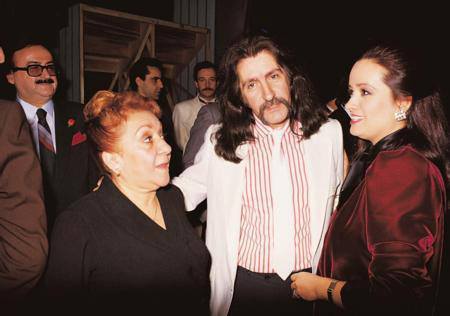As you know France is one of the biggest countries of Europe and had the greatest motivation for securing European co-operation. I will try to tell about her relationship with her European neighbours, especially Germany:
–> cultural;
–> constitutional and institutional;
–> public opinion;
–> the economic structure;
–> political developments.
FRANCE AND EUROPEAN INTEGRATION
France and Germany had important links going back 300 years. However, according to some people, Britain should work with them, and its relationship with its European partners had improved since the rift over the war in Iraq.
The Second World War is a turning point in the world history. For example, there is a difficult experience for the French, that the war didn’t destroy the French national identity in the same way as it did the German.
France understands that its political future and influence in the enlarged Europe lies in its strategic partnership with Germany. Yet France’s historical dilemma is that its partnership with Germany in a strong federal Europe is only obtainable at the price of an institutional reform of the Union that denies many of the traditions of its own political system.
CULTURAL FACTORS
* conservative attitudes survived the war
* de Gaulle secured power in 1958 and revived nationalism
* French economy transformed
* identity with rural France reinforced
* economic culture put growth before inflation and looked to the state in time of hardship
Maybe, the most important cultural factor which is a consistent relevance to understanding French attitudes to European integration is nationalism. As you know, nationalism means patriotism, sometimes to an excessive degree. However, it also means policy of national independence. France is one of the first modern nations and its traditional conservative right was discredited by its collaboration with the Nazis at the end of the Second World War. Charles de Gaulle led the Free French forces from outside France and this made him one of the conservative figure of stature.
In looking at some periods of history, one can always find some unanswered questions or dichotomized answers. Some of these uncertainties exist due to differing opinions (political or otherwise), distorted facts, denial of the truth, or simple lies. Some historical truths are quite evident, but remain shaded simply due to the fact that they are unacceptable or unpalatable. Such is the case of France under the Vichy regime and German occupation from 1940 to 1944. The most pressing questions of this era in French history are: How big was the role that the Vichy government played in the Nazi plan to rid Europe of all Jews? Were the Vichy leaders forced into such anti-semitic acts or were their hatreds and actions homegrown? Did Marshal Petain have knowledge of the Jewish “problems” in France? These questions haunt French history to the present day.
CONSTITUTIONAL AND INSTITUTIONAL FACTORS
* French administrative system is a centralized system
* hierarchical system of administration
* technocrats very influential
* strong presidential system emerged under de Gaulle
* role of the National Assembly minimal except when majority of a different political family from the President
* French Administrative Law: Themes to Keep in Mind
* Separate administrative courts that are outside judicial system and are part of executive branch
* Judicially review administrative acts and decisions
* Procedure is heavily inquisitorial but has adversarial hearing
* Less heavy emphasis on individual rights rather than reviewing rulemaking process
* Like, e.g. German administrative law, French administrative law concerns public law and public power
* French administrative law is founded on the principle of legality (principe de legalité) or rule of law
* Remember that in France there was no power to judicially review the executive until 1872 (even though the Conseil d’Etat was created by Napoleon in 1799)
PUBLIC OPINION
During the Fourth Republic, public opinion on European integration was generally positive. The important factors were acceptance of the need for reconciliation with Germany and the fear of war.
ECONOMIC STRUCTURE
The French economy is exceptionally diversified. Agriculture and the agro-food industries account for a larger share of economic activity than in many other west European countries. The predominance of the services sector in the economy is pronounced even by west European standards, accounting for some 71% of GDP. Although its role has declined in recent years following a wave of privatisations, the state still plays a leading role not only in the provision of services such as healthcare and education, but also telecommunications (the leading operator, France Télécom, is still majority-owned by the state), and transport (the railways are run as a state monopoly).
POLITICAL DEVELOPMENTS
The Fifth Republic of France emerged from the ashes of the French Fourth Republic, replacing a weak and factional parliamentary government with a stronger, more centralized democracy.
The impetus behind the creation of the Fifth Republic was the Algerian Crisis. Although France had since parted with many of its colonies, such as many of those in Western Africa and Southeast Asia, it still retained Algeria, which had a large French population. Algeria eventually became independent on July 5, 1962.
The former general Charles de Gaulle used the crisis as an opportunity to create a new French government with the stronger office of President. French Presidents were given a very long term (7 years, now reduced to 5 years) and currently still have more internal power than most of their European counterparts.
De Gaulle was succeeded by Georges Pompidou (1969–1974), Valery Giscard d’Estaing (1974–1981), Francois Mitterrand (1981–1995), and Jacques Chirac (since 1995).
10.03.2004
TURGAY SUAT TARCAN
0003020018








